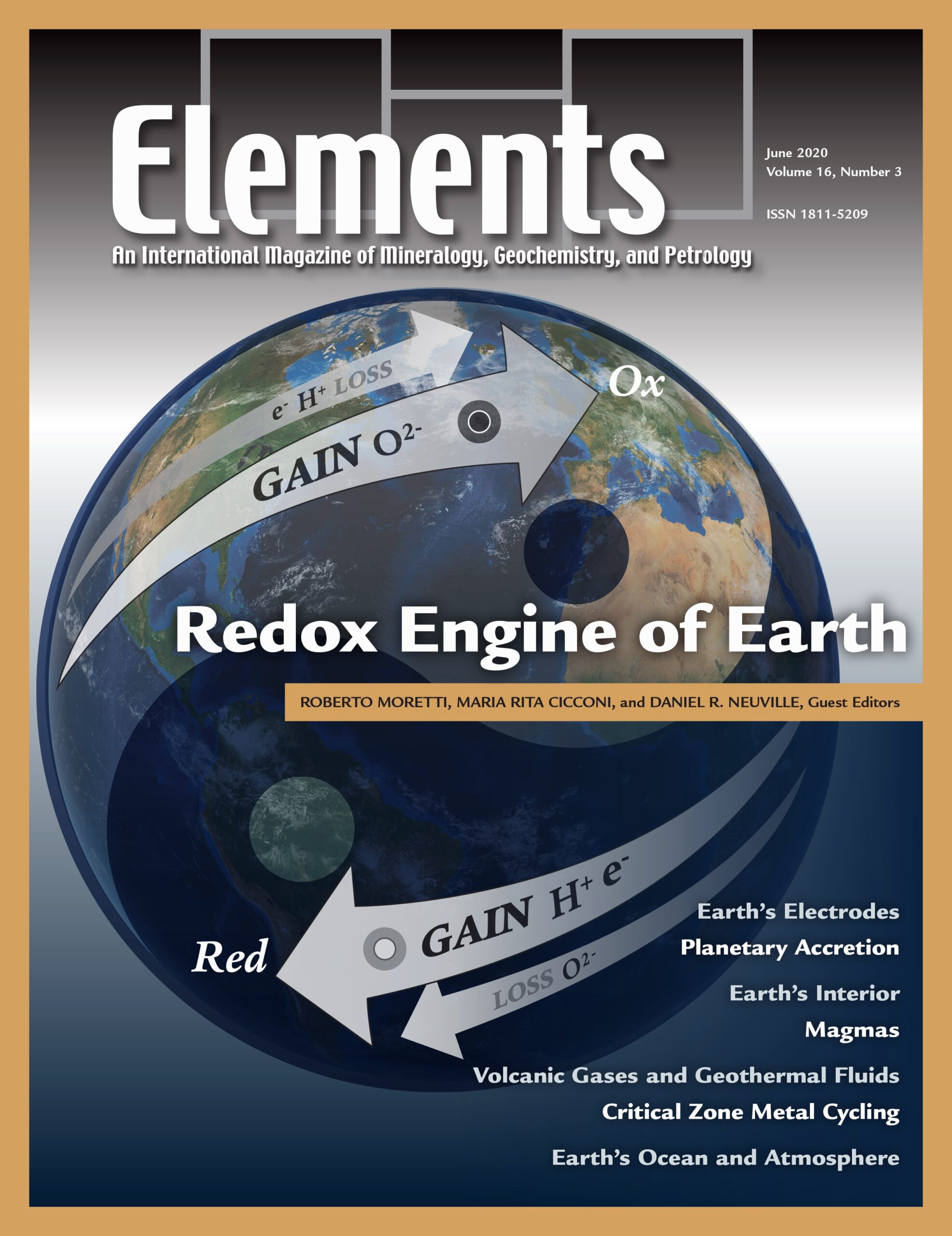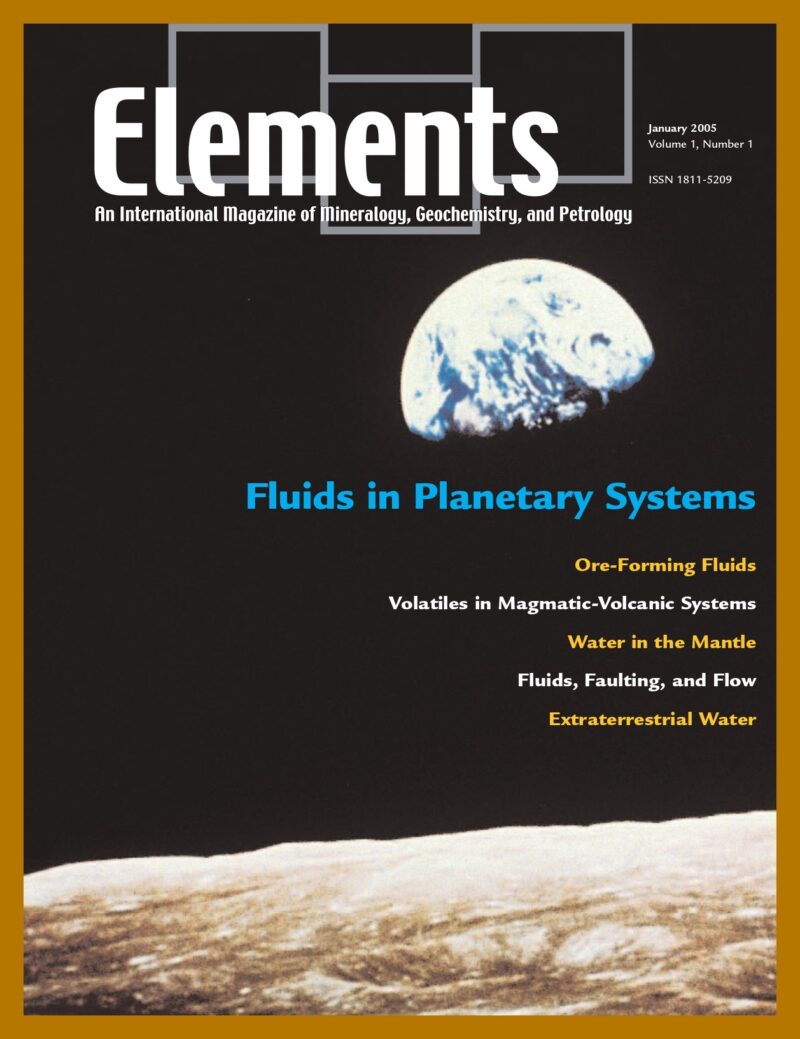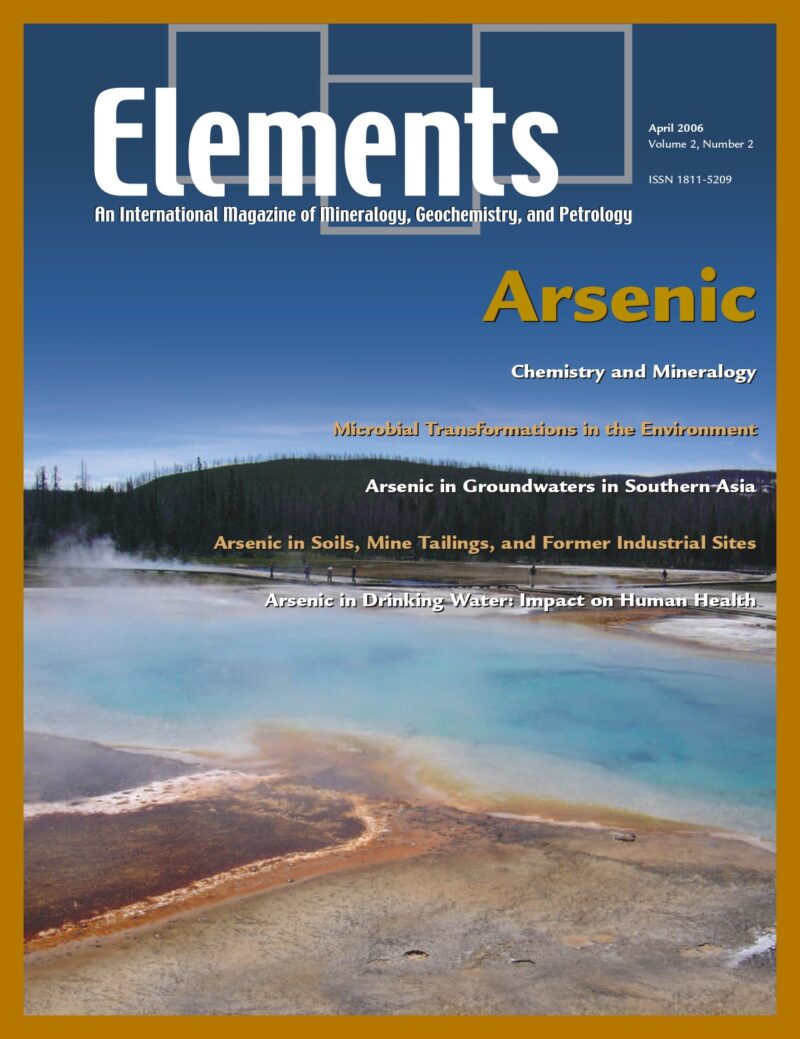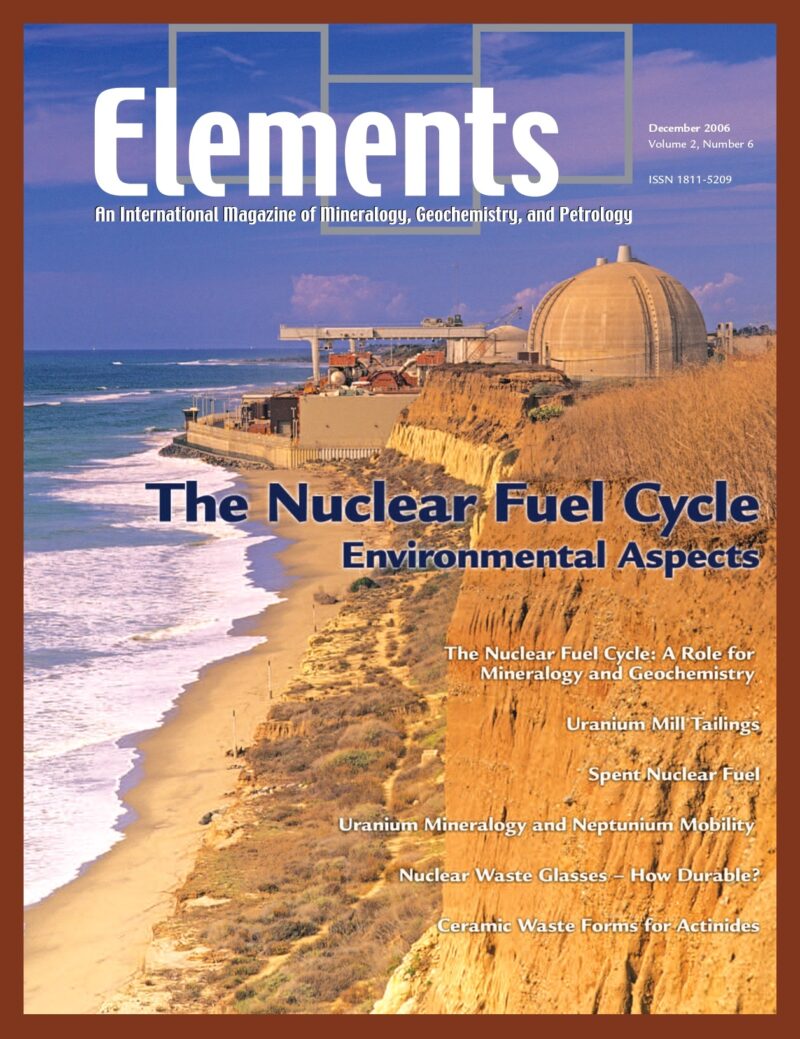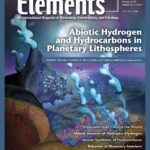The Redox Engine Of Earth, June 2020, Vol. 16, No. 3
$20.00
The redox state is one of the master variables that drove the formation of the Earth and that now also controls life processes. From the dawn of geochemistry, a knowledge of redox states has been essential to understanding the compositional makeup of our planet and the fundamental processes that occur in any natural chemical system, from the core to the atmosphere, from magmatic systems to aquatic systems.
The Redox Engine Of Earth
June 2020, Vol. 16, No. 3
The redox state is one of the master variables that drove the formation of the Earth and that now also controls life processes. From the dawn of geochemistry, a knowledge of redox states has been essential to understanding the compositional makeup of our planet and the fundamental processes that occur in any natural chemical system, from the core to the atmosphere, from magmatic systems to aquatic systems. The social and economic impact of redox geochemistry is enormous because of the control it plays on metal mobility, solubility, metal availability and any associated complexing ligands, and the widespread use of redox indicators for environmental hazard assessment. This issue of Elements illustrates how understanding redox processes can help us to understand much of Earth’s activity.
Why You’ll Love Elements Magazine:
- Expert Contributors: Articles written by renowned researchers in the field of geoscience.
- Engaging Content: Join a community of readers who are passionate about Elements.
- Exceptional Quality: Each issue is printed on high-quality paper with stunning visuals and detailed illustrations that bring complex scientific concepts to life.
Order your copy of the June 2020 issue of Elements magazine today and explore the redox engine of Earth.
Related products
-
Fluids in Planetary Systems, January 2005, Vol. 1, No. 1
$20.00Water and other geofluids play an important role in the geochemical and rheological evolution of the Earth and other bodies in the solar system. These fluids are responsible for the formation of hydrothermal mineral deposits, affect eruption behavior in volcanic systems and the geophysical properties of the mantle, and significantly affect the way in which rocks deform and fracture.
-
Arsenic, April 2006, Vol. 2, No. 2
$20.00Arsenic is an element known throughout history as a classic poison. Currently, very small but highly significant concentrations of this element in drinking water supplies are causing massive health problems to many millions of people in some of the world’s poorest nations, and more localised sources related to mining and processing are also a concern.
-
The Nuclear Fuel Cycle – Environmental Aspects, December 2006, Vol. 2, No. 6
$20.00Increasing concerns for the effects of global warming that result from rising greenhouse gas concentrations in the atmosphere have led to a reexamination, even enthusiasm, for nuclear power. Of all the current alternatives to fossil fuels, nuclear fission is the most important source of energy, accounting for 17 percent of the world’s electricity.

